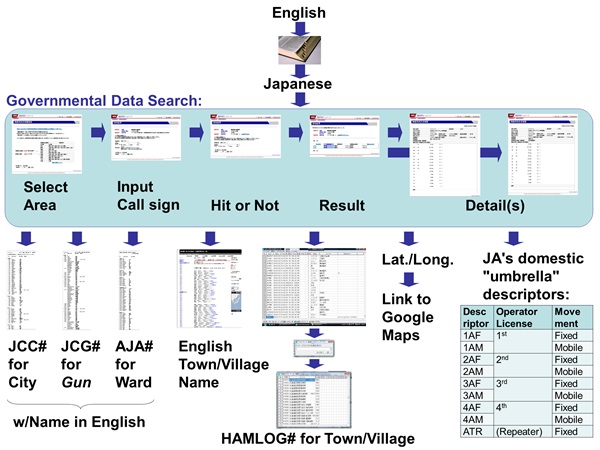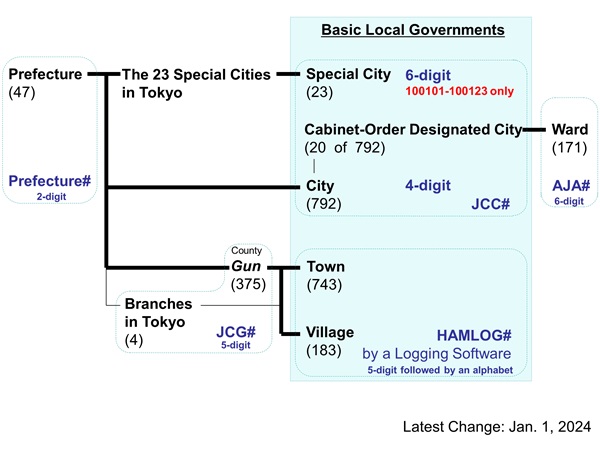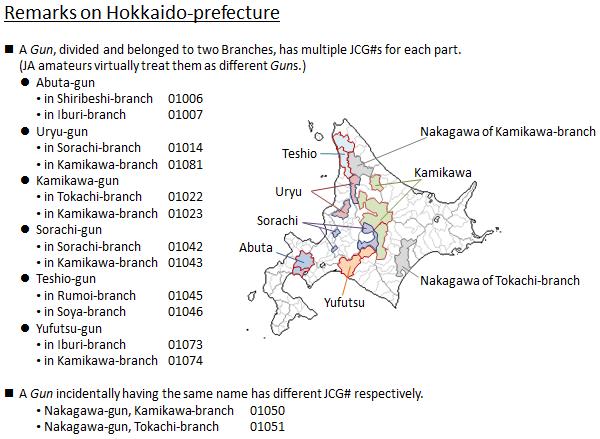NOTE: We have two kinds of "Ku."
- "Tokubetsu-ku," or a "Special City"
It exists only in Tokyo-prefecture.
It has a 6-digit number in the range of #100101-#100123.
The JCC award rule was changed effective Apr. 1, 2010 (QSO date).
- After and on Apr. 1, 2010 ... EACH "Sepcial City" is counted as an independent "City," even its 6-digit number.
- Before and on Mar. 31, 2010 ... all Special Cities were delt as #1001 concatenated.
- "Gyosei-ku," or a "Ward"
It exists in twenty cabinet-order designated (big) cities — from north to south, Sapporo, Sendai, Niigata, Chiba, Saitama, Kawasaki, Yokohama, Sagamihara, Shizuoka, Hamamatsu, Nagoya, Kyoto, Osaka, Sakai, Kobe, Okayama, Hiroshima, Kitakyushu, Fukuoka and Kumamoto.
It has a 6-digit number but OUTSIDE of #100101-#100123 (e.g. #010101, #430105, ...).
A QSL card with such a 6-digit number is eligible for the JCC with its upper 4-digit, however the full 6-digit is eligible for the other awards: AJA and WAKU.
(e.g. A lazy operator's QSL card written as JCC#430105 is eligible as #4301 for the JCC, and as #430105 for the AJA/WAKU.
Strictly speaking, he/she should describe it as "JCC#4301 / AJA#430105" separately.)
|


